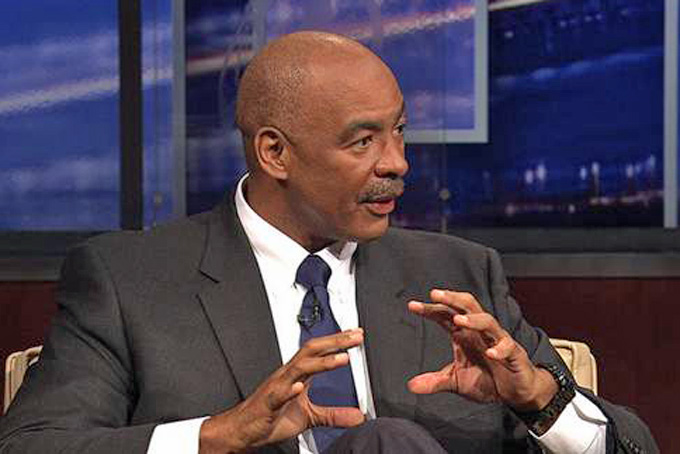
Editors Note: This week’s guest on INSIDE THE NFL is Pro Football Hall of Famer Kellen Winslow, Sr. Winslow took time before taping the episode to speak with SHOWTIME Sports’ NFL blogger Jason Cole about player safety and concussions, particularly for parents and children.
Hall of Fame tight end Kellen Winslow Sr. has a simple answer to some of the concerns over player safety and concussions, particularly for parents and children who worry about the long-term effects of football.
Follow his example and don’t play.
“I don’t think so, not based on my experience,” said Winslow, a Hall of Fame tight end who is the original great pass catcher at his position. What Winslow, this week’s Pro Football Hall of Fame guest on INSIDE THE NFL, began in the 1980s with San Diego is what men such as Tony Gonzalez, Rob Gronkowski and Jimmy Graham have enhanced.
Make no mistake. Winslow’s opinion is not some sarcastic, dismissive response to real concerns. Winslow strongly believes that kids should avoid playing tackle football until they are 15, although he had to relent with his own son, current New York Jets tight end and former first-round draft pick Kellen Jr.
“I kept him out of it as long as I could,” Winslow said.
You could say that Winslow Sr. is echoing the remarks of Dr. Robert Cantu, the Boston University neurosurgeon and senior advisor to the NFL head, neck and spine committee. Cantu recently recommended that children not play football until they are 14 because the brain and skull are particularly susceptible to trauma at an early age.
Except Winslow was saying this 25 years ago, when he started a youth flag football league in San Diego in response to poor coaching and excessive injuries he was seeing at the time.
“I’d see 7- and 8-year-olds going out there getting bloody, getting hurt, having broken bones and bad coaching and it was largely because of a lot of parents who wanted to see their kids go out and play, not because it was good for the kids,” said Winslow, who also stopped attending summer camps and clinics because of what he saw.
So Winslow started his league with a focus on building fitness and playing skills. He and other organizers even debated using helmets, eventually concluding that it was a bad idea because it would take away from focusing on the flags. Along the way, many players from the league went on to play in college.
This concept piggybacked on his experience.
Winslow didn’t start playing organized football until his senior year in high school in East St. Louis, Ill. He went out for the team only after the football coach came to his geometry class and convinced him he had the skill set to play the game. In Winslow’s case, he possessed game-changing ability.
While much of that was based on his physical prowess as a graceful, 6-foot-5, 245-pound man with wide receiver skills, the foundation of Winslow’s success was mental. That’s where Winslow sees the mistake in how football players are developed. There is too much emphasis on the physical part of the game early on.
“Football is chess and once I figured out that I was the knight on the chess board, that’s when I really understood the game,” he said. “The game is mental, not physical. Yes, you have to decide if you’re willing to do the physical things required to play the game, but even that is a mental decision that can wait. Don’t burn out some kid’s body before he has made the decision about wanting to play.”
Winslow also has a ready answer to coaches who believe that blocking and tackling need to be taught at a young age.
“That’s a Neanderthal approach. Again, the game is more mental than physical. You can teach the skills and the movements required to play the game at a young age and then allow someone to decide if they want to play at a later age. Parents need to take responsibility for this decision because a coach is going to try to get you to do what he wants you to do. It’s up to the parents to monitor their child,” he said.
Along those lines, Winslow’s son had to wait for years to play tackle football even though “he clearly had the right approach and desire to play it earlier.” Likewise, Winslow managed his son carefully in other sports. When coaches made him a pitcher in Little League, Winslow strictly limited the number of pitches his son threw and prohibited him from throwing a curve.
Even those restrictions pale in comparison to what Winslow feels should be done in football, despite the fact that he loves the sport and knows how much glory it brought him. The developing science on head trauma, concussions and CTE among football players simply backs up Winslow’s common-sense approach.
“I don’t know that you can quantify how much damage is being done to children, but I do believe it’s a cumulative effect. The sooner you play, the sooner you’re going to have head trauma. We also know now very well what effect early drug use has on the development of the brain, so I think it’s reasonable to conclude what type of effect head trauma will have,” Winslow said.
So it’s simple, tackling can wait.
https://s.sho.com/IsML5TINSIDE THE NFL premieres tonight at 9 p.m. ET/PT on SHOWTIME. New episodes premiere Wednesdays at 9 p.m. ET/PT throughout the NFL season.